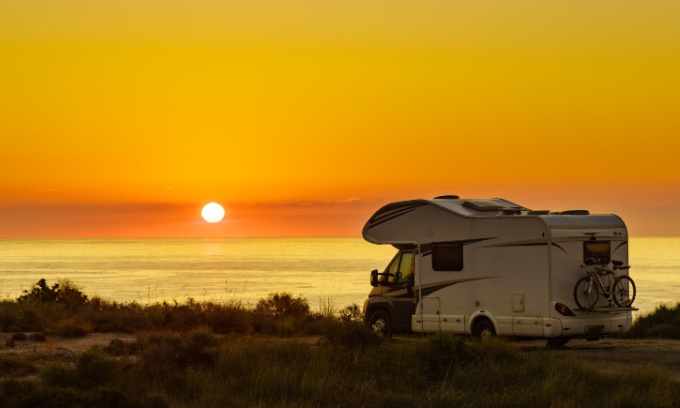KEY POINTS
- Caravan insurance can provide financial cover if something were to happen to your caravan or its contents..
- Your caravan may sometimes be covered by the CTP insurance policy of the towing car, or it may need its own registration and CTP..
- Dot point 3 in here.
What is caravan insurance?
Caravan insurance in Australia is a stand-alone insurance policy that can provide financial cover if something were to happen to your caravan or its contents. Depending on your policy, caravan insurance may provide cover for accidental loss or damage, theft, and legal liability for damage to another person’s property caused by the use of your caravan.
You can typically purchase insurance to cover your caravan while it is travelling on the road, when it is on-site at a caravan park, and/or when it is not being used for a certain period of time. Some insurers may also cover a trailer, camper trailer or horse float under a caravan insurance policy.
There are different levels of cover available under a caravan insurance policy, which are generally grouped into two areas:
- Comprehensive: Policies that cover damage or loss of the caravan and property inside it, as well as any damage to other people’s property
- Third party: Policies that only cover damage to someone else’s property where the policyholder is at fault. You and your property are typically not covered if you are at fault. These types of policies could include cover for fire and theft by default, or these types of incidents could be included only as an add-on expense, depending on the insurer.
To find and compare the best caravan insurance in Australia for your needs, head to our comparison tool.
Do you need caravan insurance? What does it cover?
Caravan insurance is typically not a legal requirement in Australia, unlike compulsory third party (or CTP) insurance, which is a must for all cars driven on public roads. However, as with comprehensive car insurance, not having caravan insurance could leave you financially vulnerable if an accident were to occur, or if your caravan was stolen. It is worthwhile doing your homework to determine whether the cost of caravan insurance is worth it for you, bearing in mind the potential risks of going without it.
Are caravans covered by car insurance?
If your caravan was involved in an accident, it may be covered by your car’s compulsory third party insurance (CTP), provided the caravan was in a roadworthy condition and being towed by a registered car. In some states and territories, caravans themselves have to carry a separate registration certificate, although they may not need separate CTP insurance. Consider checking your CTP policy and/or your local traffic authority.
However, CTP’s cover is limited. In the case of an accident, CTP only covers liability for injuries or death caused to other people. For example, if you were in an accident and your towed caravan hit another car, causing injury to that driver or passenger, then your vehicle’s CTP insurance may help cover the costs to compensate those injured.
CTP insurance will not cover damage to your own property, or the property of others. For example, CTP would not pay for any damage caused by your caravan to another vehicle in an accident, nor would it cover repairs to your own caravan or car.
Caravans are not typically covered by other forms of car insurance either, such as comprehensive insurance, unless your policy specifically states otherwise. If you need cover for damage or loss, then you may want to consider separate caravan insurance.
What can caravan insurance cover?
Coverage offered by your caravan insurance will vary depending on the policy and level of cover you choose. You can generally expect some financial protection for loss or damage to your caravan caused by or arising from:
- Accidental damage
- Theft or attempted theft
- Fire
- Storm and flood
- Earthquake
- Vandalism or a malicious act by a third party
- Emergency repairs, accommodation and transport.
It could also cover the costs of:
- Food spoilage
- Storage
- Towing
- Contents up to a certain amount.
What does caravan insurance not cover?
Exclusions for caravan insurance will vary depending on your policy. Some common exclusions that may apply include loss, damage, injury or death arising from:
- Deterioration, depreciation, rust, corrosion, mold, or wear and tear of the caravan
- Vermin
- The lawful seizure or confiscation of your caravan or any part of it
- Acts of war or terrorism
- Faulty design, or mechanical or structural failure in the caravan
- Fusion of electric motors
- A failure to secure your caravan, or leaving it in an unsafe position
- Using your caravan for an unlawful purpose
- An intentional act by you, a family member, or a person who has your permission to use your caravan
- Pre-existing damage from before you took out your policy
- Water escaping from a shower recess or shower base
- Scorching or melting where there was no flame (check details with your insurer).
Caravan insurance: optional benefits and extras
Most caravan insurance providers will offer some optional benefits or extras you can add to your policy. These benefits will usually come at an additional cost to your insurance premium. Some of these benefits may include:
Contents cover
Some insurers will ordinarily only cover your caravan’s contents up to a certain amount, while others may not cover caravan contents at all. If you want to take out contents cover beyond what your policy offers, you may be able to purchase this through your provider as an optional benefit. You may also be able to specify particularly valuable items on your policy so you can cover them for what it would cost to repair or replace them.
Keep in mind your insurer may exclude certain items from your policy, such as sporting equipment, computers or cameras. Check your exclusions for details.
Lay up cover
Your provider may allow you to add cover for your caravan while it is not being used, known as lay up cover. This option typically lets you maintain some cover at a reduced premium for the months you know you will not be using your caravan.
However, this cover may only apply if you keep your caravan in a safe and secure spot while it is not being used, such as a carport or lockable garage. It may also only be available for a certain period of time, such as six months. Check with your provider to see what is available.
Annexe cover
An annexe is usually a caravan extension made out of vinyl or canvas material with walls, windows and a roof or awning over the top of it. Some providers may not cover your caravan’s annexe (if you have one) under their standard benefits for caravan insurance, or they may only offer limited annexe cover. If it is not included in your standard benefits, your insurer may offer annexe cover as an optional extra for an additional premium.
How much does caravan insurance cost?
The cost of your caravan insurance will depend on a range of factors, including:
- Type of cover you choose: Your premium will differ depending on whether you choose to cover a touring or travelling caravan, or an on-site caravan (e.g. one located at a caravan park).
- Level of cover and extras: Some providers may offer different levels of cover, such as comprehensive, third-party fire and theft or third-party property caravan insurance. Comprehensive cover will usually carry a higher premium, as will policies with optional extras.
- Sum insured: Providers of this type of insurance may offer agreed value or market value when determining the sum insured for your caravan. Agreed value is a fixed sum you and your insurer choose for the caravan, whereas market value is based on the amount your caravan is worth at the time of the claim. Agreed value policies tend to carry a higher premium.
- Excess: The excess is the amount you agree to pay out-of-pocket when making a claim. If you choose a higher excess, this will tend to lower your premium, and vice versa.
Compare insurers with Canstar’s comparison tool.
Considerations when choosing caravan insurance
Before you take out caravan insurance, read each policy’s Product Disclosure Statement (PDS) thoroughly so you are aware of the terms and conditions involved, including the benefits and exclusions, and any additional excesses that may apply.
If you are buying caravan insurance from the same provider you use for other insurance policies, such as your car insurance, it could be worth checking to see if you are entitled to a multi-policy discount.
What is the difference between a caravan, camper trailer and motorhome?
What is a caravan?
A caravan is an unpowered (engineless) vehicle that can be towed by a car. It often includes some basic bedding, seating, bench space, kitchen facilities, and sometimes a shower and toilet. A caravan can be plugged into a power outlet or have its own battery pack or small generator to power lights, fridges or other kitchen appliances on board.
What is a camper trailer?
A camper trailer is a compact version of a caravan and can be towed by a car. When stationary, it can fold out into a small tent-like living space with a roof and walls. This space may include a bed or lounge, storage space and some basic kitchen facilities. Some insurers may offer cover for a camper trailer under a caravan insurance policy.
What is a motorhome?
A motorhome, otherwise known as a campervan or RV, is a large engine-powered vehicle, usually the size of a small truck. These vehicles often include bedding, kitchen facilities, a toilet and shower and other home style comforts. Motorhomes are usually not covered under a caravan insurance policy. There are, however, motorhome insurance policies on the market in Australia.
Cover image source: Voyagerix/Shutterstock.com








